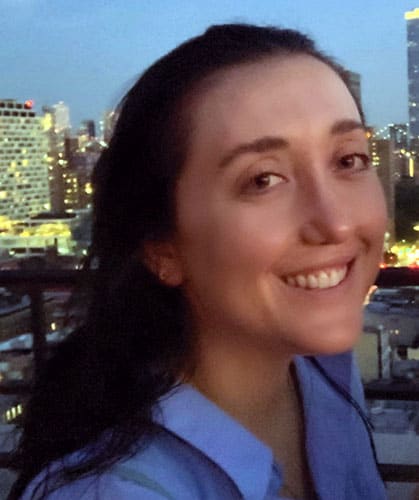Choctaw student wants others to know about available educational services
Published August 1, 2022By Shelia Kirven

Rachel Herring, a master’s degree candidate in Sustainability Management at Middlebury Institute of International Studies (MIIS), is taking advantage of some unique program opportunities. She wants to pass on her knowledge to other Choctaw students who may benefit.
Herring, 28, grew up in Ojai, California. Both her mother and grandmother are both from Oklahoma. She graduated from NYU in 2016 with an individualized concentration on the arts and sustainability in the fashion industry. She will be entering her second year at MIIS this fall.
Herring said she became aware of some great opportunities after entering graduate school that she had never heard of before, including an internship opportunity with the Sandia National Labor and the Department of Energy for the Indian Energy Program.
“I am a year-round graduate intern for Sandia National Labs under the Indian Energy Program, and this has been a wonderful opportunity to witness Tribal Sovereignty through the lens of clean, renewable energy projects funded by the Department of Energy. I encourage any Choctaw undergraduate/graduate student in STEM or environment-related studies to look at this program as a paid opportunity to pursue research and learn more about renewable energy projects on Tribal nations.”
Information about internship opportunities available can be viewed at sandia.gov/careers/career-possibilities/students-and-postdocs. The website states that interns work on real-world, challenging projects; they also socialize, travel and explore life in New Mexico and California.
Herring said she has traveled to several tribal locations in New Mexico and California and has upcoming trips in the fall.
“I think the most important part of this internship for me is you can learn about all these things in the classroom and in theory, and try to imagine it, but this program allows me to travel and be able to see these renewable energy projects in real-time and meet with members of these tribes and see how these projects have benefited them and have conversations with real people. It’s just been fantastic.”
The other part of the program requires her to develop a research project and use the trips and other resources to present at the end of the year in her final deliverable.
Herring has also studied Japanese at MIIS and recently accepted the Critical Language Scholarship from the US Department of State. Although virtual for Summer 2022, she studies through the US Dept of State Partnership with Okayama University. Open to undergraduate and graduate students. The CLS Program offers the opportunity to choose from multiple critical languages for an immersive summer program. Herring attended the immersion school for eight weeks, where she could only speak Japanese.
Herring states that she loves Japanese culture and has always been interested in history, so she chose to immerse herself in Japanese for the program term.
“I think learning any other language is always an asset. If there’s an opportunity to learn a language, I don’t see any reason not to take it.” She has always dreamed of living abroad and said she never expected an opportunity like that would be available. She said she wants to use the skills in her future career.
She encourages Choctaw students to pursue this opportunity to travel abroad, learn a new language, and connect with students with similar interests.
Herring says that the programs she has had the opportunity to participate in are great opportunities for both undergraduate and graduate students.
“It would be great to see more Choctaw students take advantage of these programs. I think I’m the first Choctaw student to be in the Indian Energy Program as an intern. It would be great to get some more in there,” said Herring. “So many doors open when you’re in school, and so many resources become available that I wouldn’t have been able to find on my own if I hadn’t gotten to school. I think it was on a school job board that I saw a position for the Indian Energy Program. I was really curious about it, so I applied. I hope by sharing these experiences I’ve been so lucky to receive, more Choctaw students will become aware and take advantage of these opportunities!”
Herring says she hopes to work in the clean energy sector and be able to help Indigenous people and tribes in America become sovereign nations through the clean energy sector.